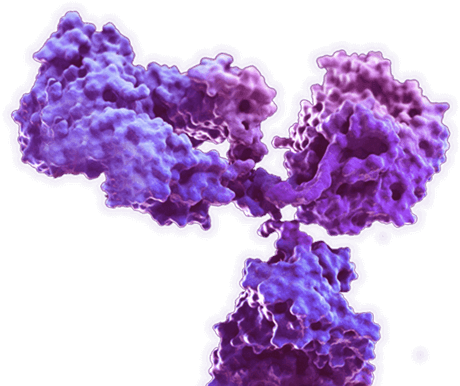Mouse Anti-PARP1 Antibody (MOF032922W121)
Cat: MOF032922W121
Certificate of Analysis Lookup
To download a Certificate of Analysis, please enter a lot number in the search box below. Note: Certificate of Analysis not available for kit components.
Lot Number
To download a Certificate of Analysis, please enter a lot number in the search box below. Note: Certificate of Analysis not available for kit components.
Lot Number
| Size: | |
| Conjugate: | |
| Inquiry |
- Product Details
Specifications
| Host species | Mouse |
| Species Reactivity | Human, Chicken |
| Specificity | This antibody detects endogenous PARP protein. |
| Immunogen | Synthetic Peptides of PARP |
| Format | Liquid or Lyophilized |
| Buffer | PBS pH 7.3, 50% glycerol, 0.5% BSA |
| Regulatory Status | For Research Use Only. Not For Clinical Use. |
| Shipping | Gel Pack |
| Storage | Store at 4°C: short-term (1-2weeks) Store at -20°C: long-term and future use |
| Purity | > 95% was determined by SDS-PAGE |
| Purification | Affinity Purified |
| Cellular Localization | Nucleus |
Application Information
| Application | WB |
| Application Notes | WB: 1/1000-3000 The optimal dilution should be determined by the end user. |
Target
| Introduction | Participates in the base excision repair (BER) pathway by catalyzing the poly(ADP-ribosylation) of a limited number of receptor proteins involved in chromatin structure and DNA metabolism. This modification follows DNA damage and occurs as a mandatory step in the detection/signaling pathway, leading to the repair of DNA strand breaks (PubMed:17177976, PubMed:18172500, PubMed:19344625, PubMed:19661379, PubMed:23230272). Mediates poly(ADP-ribosylation) of APLF and CHFR (PubMed:17396150). Positively regulates the transcription of MTUS1 and negatively regulates the transcription of MTUS2/TIP150. Together with EEF1A1 and TXK, form a complex that acts as a T helper 1 (Th1) cell-specific transcription factor and binds the promoter of IFN-γ to directly regulate its transcription, thus playing an important role in Th1 cytokine production (PubMed: 17177976). Recruitment of PARP9 and DTX3L to DNA damage sites is required (PubMed:23230272). PARP1-dependent PARP9-DTX3L-mediated ubiquitination promotes rapid and specific recruitment of 53BP1/TP53BP1, UIMC1/RAP80 and BRCA1 to sites of DNA damage (PubMed:23230272). Mediates serine ADP ribosylation of target proteins after interaction with HPF1; HPF1 confers serine specificity (PubMed:28190768). Mediates histone multimerization (ADP-ribosylation) in an HPF1-dependent manner (PubMed:27067600). Involved in ATP synthesis in the nucleus along with NMNAT1, PARG and NUDT5 (PubMed:27257257). Nuclear ATP production is required for energy-intensive chromatin remodeling events (PubMed:27257257). |
| Alternative Names | PARP-1, Poly(ADP ribose) polymerase 1, sPARP1, ADPRT1, ADP ribosyltransferase NAD(+) |
| Gene ID | 142 |
| UniProt ID | P09874 |
See other products for " PARP1 "
| MO-AB-03331Y | Mouse Anti-Chicken PARP1 Antibody (MO-AB-03331Y) |
| MO-AB-43341W | Mouse Anti-Hamsters PARP1 Antibody (MO-AB-43341W) |
| MO-AB-17027Y | Mouse Anti-Sheep Parp1 Antibody (MO-AB-17027Y) |
| MO-AB-11857W | Mouse Anti-Chimpanzee PARP1 Antibody (MO-AB-11857W) |
| MO-AB-06020H | Mouse Anti-Frog parp1 Antibody (MO-AB-06020H) |
| CBMOAB-88473FYB | Mouse Anti-Rice PARP1 Antibody (CBMOAB-88473FYB) |
| CBMOAB-91452FYA | Mouse Anti-Zebrafish parp1 Antibody (CBMOAB-91452FYA) |
| MO-AB-61017W | Mouse Anti-Marmoset PARP1 Antibody (MO-AB-61017W) |
| CBMOAB-38137FYC | Mouse Anti-Arabidopsis PARP1 Antibody (CBMOAB-38137FYC) |
| MO-AB-17564R | Mouse Anti-Cattle PARP1 Antibody (MO-AB-17564R) |
For Research Use Only | Not For Clinical Use.
Online Inquiry


